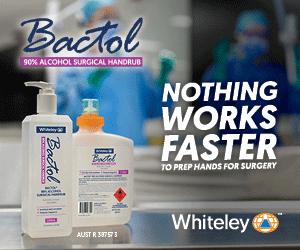
The reflection I wish to share with you revolves around my experience of being one of four Māori students in a class of 50. Being the minority in the room is not a new experience for me; however these last three years have really challenged me in that respect.
Recently, as part of our assessments, my cohort were asked to put together a presentation for our peers exploring the various factors that contribute to inequitable health outcomes for Māori.
Come assessment day, we sat and listened about how our health, education and social systems have failed our people. We die seven years earlier, are two-and-a-half times more likely to die from preventable diseases, are twice as likely to commit suicide or self-harm, and are over-represented in nearly all negative health outcomes. Sitting in that classroom, hearing the suffering of my people being reduced to mere tick-boxed assessment criteria, hurt me.
It hurt because these were the stories of my whānau.
It hurt because, despite knowing about these issues for the last few decades, very little has been done to change course.
It hurt because of one of the comments my peer made in jest. “I’m Pākehā, so I can sleep during this.”
When I stood and presented, a lifetime of internalised racism manifested. And I broke.
When my turn came around and I stood to present, a lifetime of internalised racism manifested. And I broke. And I cried. And I swore. In that moment, I felt powerless and I remembered all the times I had questioned my place in the world:
- Being called an n-word by my peers in primary school, and them laughing at me for getting angry.
- Receiving death threats, in person and on social media, because “your people are what’s wrong with New Zealand”.
- My father teaching me to present myself in a way that is more palatable to Pākehā.
- My mother being jeered at in public for her moko kauae.
- Being told to speak English during my first placement.
When you are conditioned to believe your identity, your culture and your people don’t matter, its quite confronting when you are tasked with exploring the mechanisms that perpetuate this maemae. Let alone having to do a presentation to a room full of people, who get to choose whether or not Māori health inequity is an important issue. I don’t get that choice. I knew that when I left that room, I would be walking into a world where my whānau and I are not given a fair go.
After my meltdown, I was pulled aside by my tutor, who chastised me for my lack of professionalism – which was fair given my cussing.
One of the things that stood out to me was when she said: “You’re privileged to be here.”
At first I thought, “Well obviously you don’t get it”, but after some time had passed, I realised she was right. I am privileged. Here I stand, a third-year nursing student, soon to be a registered nurse. I stand here because of the hard work of my predecessors – the likes of Ākenehi Hei, Putiputi O’Brien, Irihapeti Ramsden, who challenged the status quo and set the precedent that Māori belong in nursing.
I stand here because of my whānau, who supported me to pursue education despite not having that opportunity afforded to them. What I have come to realise is that my journey through nursing is but a chapter in the much larger narrative created by our tipuna. A narrative that ends with the return of mana motuhake, tino rangatiratanga and good health.
But we’re not quite there yet.
I realise now, my role.
My role is to be an agent of change. The privileges afforded to me have empowered me to do better and be better and I have a responsibility to continue the work laid out by our tipuna.
I believe nurses have the power and influence to build a better world, a fairer world. And after I walk across that stage in December, that’s exactly what I plan on doing.
He kākano ahau.
Kimmel Manning is a third year nursing student and chair of NZNO’s Te Runanga Tauira.




